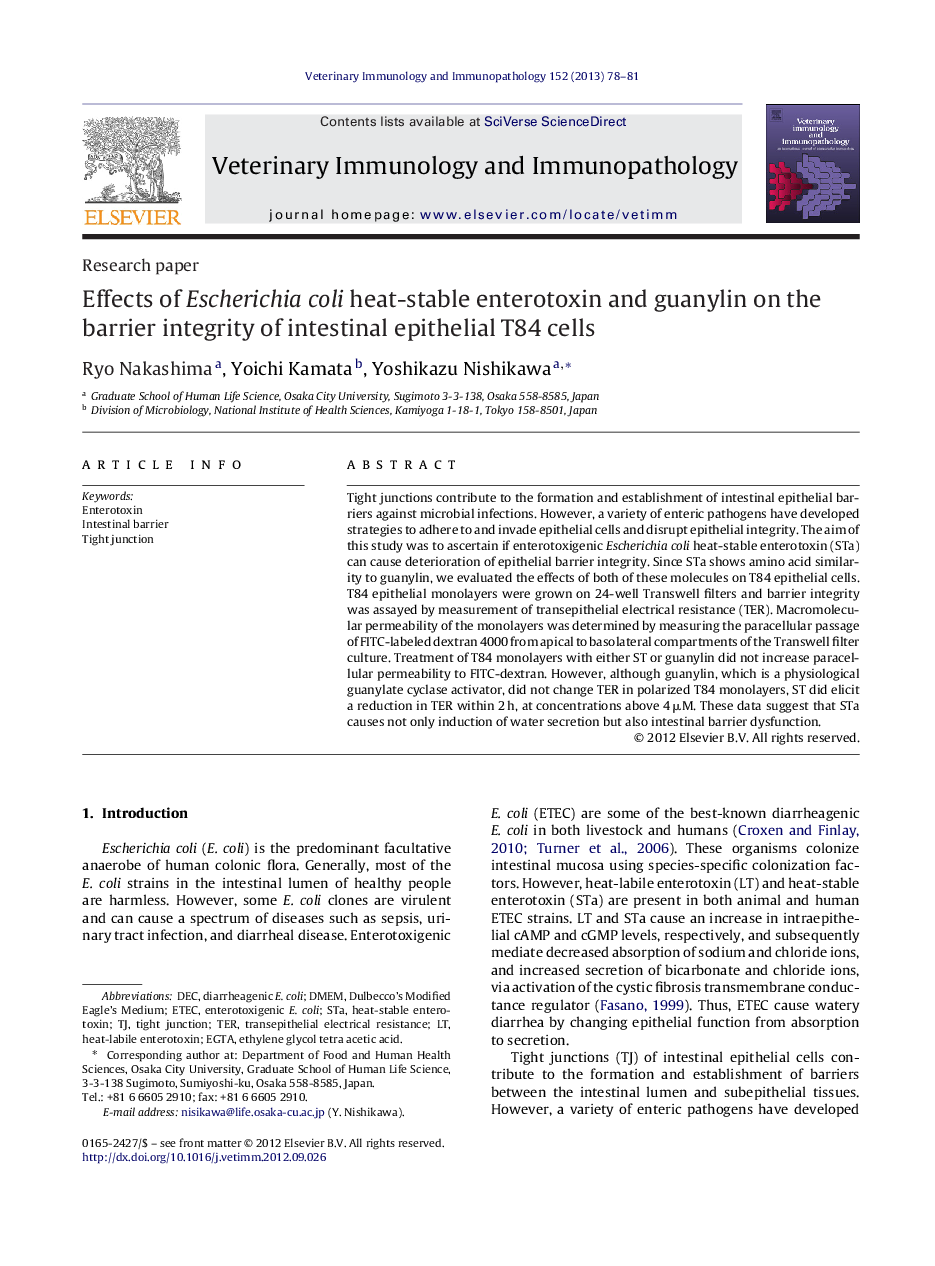| Article ID | Journal | Published Year | Pages | File Type |
|---|---|---|---|---|
| 2461739 | Veterinary Immunology and Immunopathology | 2013 | 4 Pages |
Tight junctions contribute to the formation and establishment of intestinal epithelial barriers against microbial infections. However, a variety of enteric pathogens have developed strategies to adhere to and invade epithelial cells and disrupt epithelial integrity. The aim of this study was to ascertain if enterotoxigenic Escherichia coli heat-stable enterotoxin (STa) can cause deterioration of epithelial barrier integrity. Since STa shows amino acid similarity to guanylin, we evaluated the effects of both of these molecules on T84 epithelial cells. T84 epithelial monolayers were grown on 24-well Transwell filters and barrier integrity was assayed by measurement of transepithelial electrical resistance (TER). Macromolecular permeability of the monolayers was determined by measuring the paracellular passage of FITC-labeled dextran 4000 from apical to basolateral compartments of the Transwell filter culture. Treatment of T84 monolayers with either ST or guanylin did not increase paracellular permeability to FITC-dextran. However, although guanylin, which is a physiological guanylate cyclase activator, did not change TER in polarized T84 monolayers, ST did elicit a reduction in TER within 2 h, at concentrations above 4 μM. These data suggest that STa causes not only induction of water secretion but also intestinal barrier dysfunction.
